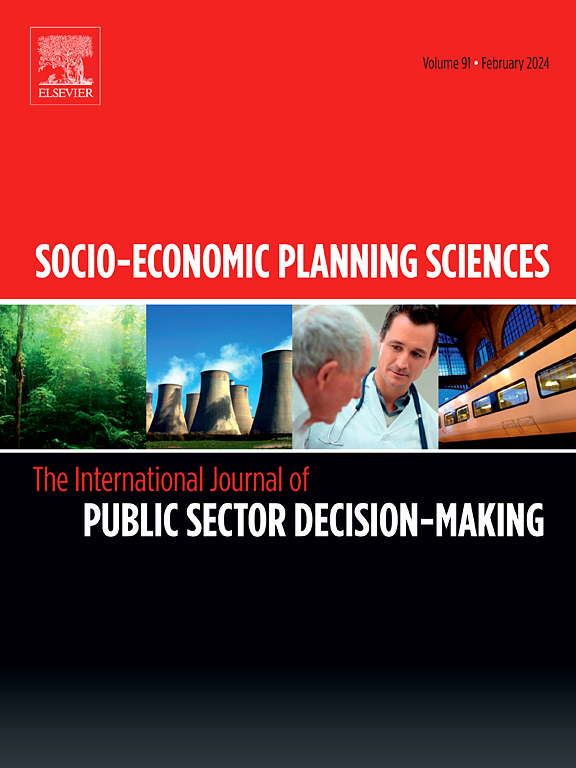Sustainable planning of penal facilities through multi-objective location-allocation modelling and data envelopment analysis
IF 6.2
2区 经济学
Q1 ECONOMICS
引用次数: 0
Abstract
The escalating population of inmates necessitates a substantial increase in penal facilities. Consequently, there arises a pressing need for strategic planning to identify the location and capacities of new penal facilities, along with the appropriate allocation of prisoners therein. This study proposes a solution methodology to address this imperative by considering multiple future periods and objectives. Specifically, the study examines three objective functions simultaneously based on the three dimensions of sustainability, delineated along economy, society, and environment. To operationalize this framework, a multi-objective mixed integer linear programming model is developed, and an iterative solution methodology is proposed to generate alternative solutions. The alternative solutions are created for two scenarios: exact and fractional assignment of prisons in cities. Subsequently, the efficacy of these alternatives is assessed through the application of super-efficiency and cross-efficiency data envelopment analysis techniques. In each of these scenarios, the most efficient solution among alternatives is identified as the final solution. The empirical data utilized in the study is sourced from real-world cases in Turkey. Comparative analyses of the solutions under each scenario offer valuable insights into their respective advantages and disadvantages, thereby contributing to a comprehensive understanding of the problem.
求助全文
约1分钟内获得全文
求助全文
来源期刊

Socio-economic Planning Sciences
OPERATIONS RESEARCH & MANAGEMENT SCIENCE-
CiteScore
9.40
自引率
13.10%
发文量
294
审稿时长
58 days
期刊介绍:
Studies directed toward the more effective utilization of existing resources, e.g. mathematical programming models of health care delivery systems with relevance to more effective program design; systems analysis of fire outbreaks and its relevance to the location of fire stations; statistical analysis of the efficiency of a developing country economy or industry.
Studies relating to the interaction of various segments of society and technology, e.g. the effects of government health policies on the utilization and design of hospital facilities; the relationship between housing density and the demands on public transportation or other service facilities: patterns and implications of urban development and air or water pollution.
Studies devoted to the anticipations of and response to future needs for social, health and other human services, e.g. the relationship between industrial growth and the development of educational resources in affected areas; investigation of future demands for material and child health resources in a developing country; design of effective recycling in an urban setting.
 求助内容:
求助内容: 应助结果提醒方式:
应助结果提醒方式:


